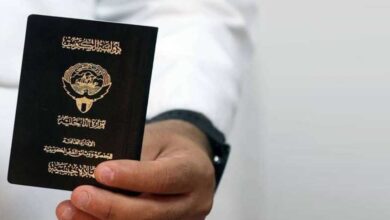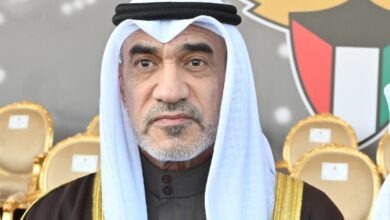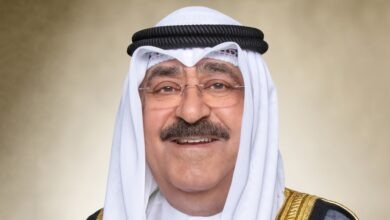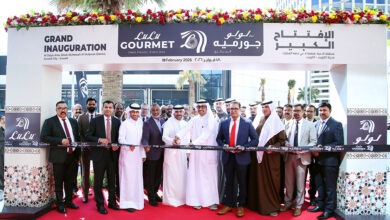Fishermen implore new government to ‘save them from drowning’
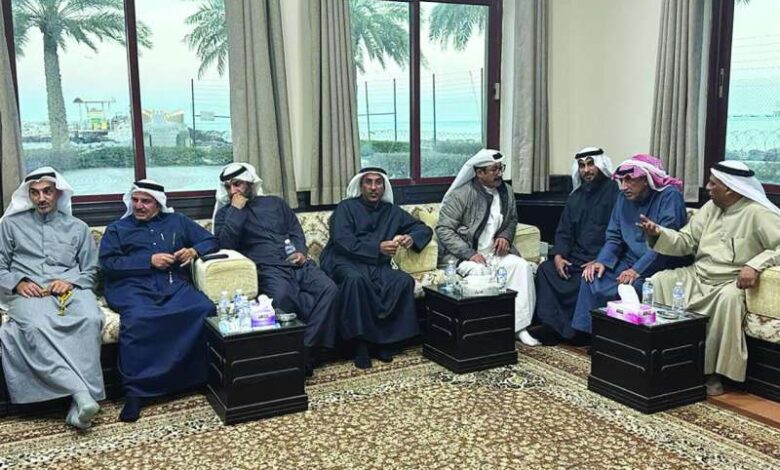
Amid an air of optimism accompanying the formation of the new government under the leadership of Prime Minister Sheikh Dr. Muhammad Al-Sabah, a sense of hope and anticipation permeated the fishing sector. People in this field, grappling with chronic issues, are seeking comprehensive solutions to rescue the fishing sector from its challenges.
The meeting at the Fishermen’s Diwaniya in Fahaheel witnessed the boundless hopes of the sector for the new government. Participants expressed their joy at Sheikh Mohammed Al-Sabah becoming the Prime Minister, extending their congratulations and emphasizing his patriotism, reports Al-Rai daily.
Fishing license holders emphasized the urgent need for radical solutions to address challenges, particularly those related to subsidized diesel and mandatory tracking devices for sailing operations.
Khaled Al-Azmi highlighted the impact of the subsidized diesel crisis on fishing boats, leading to their cessation and the migration of skilled workers to neighboring countries. He urged the new government to rectify the situation, advocating for the reinstatement of the full share of subsidized diesel, as the current allocation is insufficient for multiple fishing trips.
Al-Azmi emphasized that unresolved diesel issues would devastate the fishing sector and called for real support to prevent its collapse.
Concerns were raised about tracking devices being imposed only on fishermen, questioning why they were not mandated for all yachts and marine vessels.
Participants criticized the narrow timeframe, monopolistic practices, and excessive pricing of these devices. They emphasized the need for suitable tracking devices for small ships and expressed concerns about potential theft. The fishermen called for fair compensation in case of theft and stressed the need for the government to understand the challenges facing their profession.
Walid Al-Jarki highlighted the increased fees for bringing in workers and called for a change in the government’s view towards the fishing profession. He emphasized the importance of preserving subsidies for the local product, citing its role in maintaining prices and contributing to food security. Al-Jarki called for addressing the diesel crisis, resolving tracking device issues, and creating a modern fishing village with essential services.
Muhammad Al-Azmi underscored the impact of reduced fishing trips due to the diesel crisis, resulting in a severe shortage of local fish and increased prices. He called for the recruitment of skilled workers from Egypt and the distribution of ship tracking devices for free.
Abdullah Al-Sarhid questioned the logic behind preventing fishermen from accessing diesel, expressing concerns about the motives behind such decisions. He called for restoring the fishermen’s quota of subsidized diesel, highlighting the sector’s importance in achieving food security. Al-Sarhid urged the government to either find a quick solution or appropriately value the sector, ensuring the continuation of the fishing profession.
Hazal Al-Azmi expressed frustration at the challenges faced by fishermen, indicating a potential halt to fishing activities if their demands continue to be neglected. The session reflected the deep-seated concerns and expectations of the fishing sector, urging the government to address their issues promptly and comprehensively.
During the meeting the fishermen have put forward seven claims:
- Restoring the share of subsidized diesel as it was before May 2023.
- Disbursing the diesel quota before the beginning of the month, so as not to cause crowding and disruption.
- Forming a permanent committee of concerned parties to develop the fishing sector and resolve its issues promptly.
- Providing tracking devices for fishermen, similar to the Gulf countries, and giving a new grace period for their installation.
- Expediting the construction of a village for fishermen that includes all services.
- Gasoline subsidies for cruiser owners, similar to diesel subsidies for survival vehicles.
- Increase support for fisheries, in the same way as farmers, livestock breeders, dairy producers, and other food security sectors.
While the fishing trawler owners acknowledged the absence of a gasoline subsidy, they expressed their hope for the state to provide subsidized fuel for them, similar to diesel engines. They emphasized the need to find a designated place for the cruisers, especially since placing them in public squares has been met with opposition from the municipality.
Owners of pleasure cruisers voiced their expectations for the new government to address their concerns and highlighted that the situation for pleasure cruisers is comparatively better, even regarding fines. They pointed out that the fine for a fishing cruiser is 500 dinars, while the fine for a pleasure cruiser is only 50 dinars.
Regrettably, due to increasing losses and mounting debts, several license holders felt compelled to sell their licenses and boats, exiting the profession. The fishermen urged an end to their suffering and emphasized their genuine willingness to install tracking devices for protection against theft and the perils of the sea. However, they raised concerns about the financial burden of acquiring devices, particularly for fishermen with multiple cruisers.
They underscored the challenges faced in each fishing trip, including diesel costs, worker’s food, ling maintenance, spare parts, and addressing unforeseen malfunctions and dangers at sea. Despite their patience and endurance, fishermen are struggling, and the profession has become increasingly unattractive due to worsening conditions that have surpassed acceptable limits.







